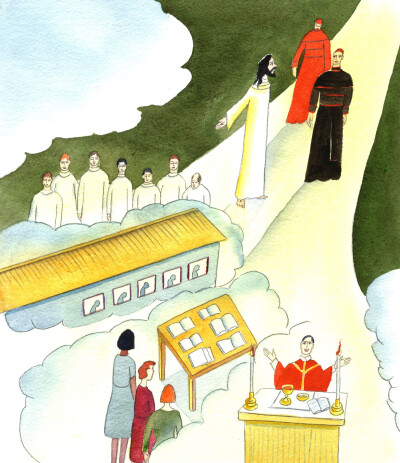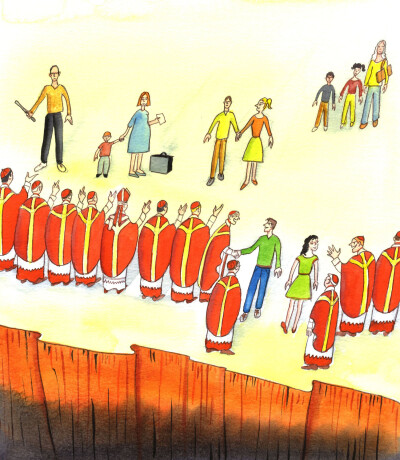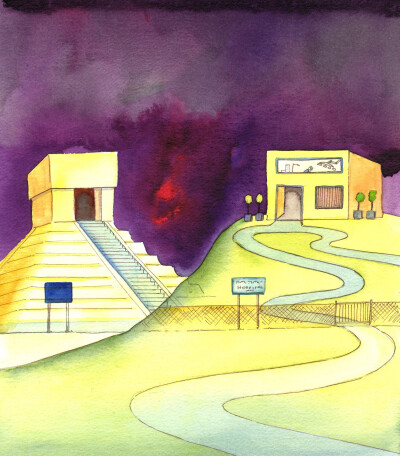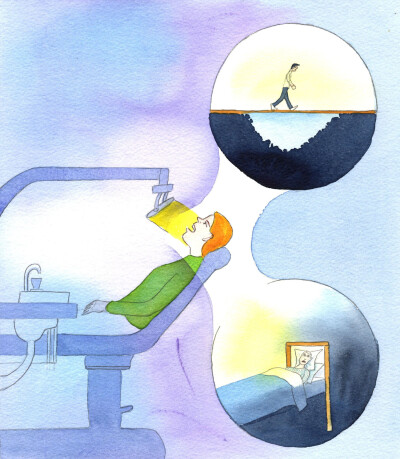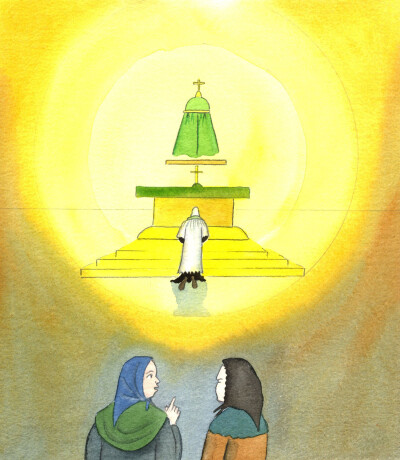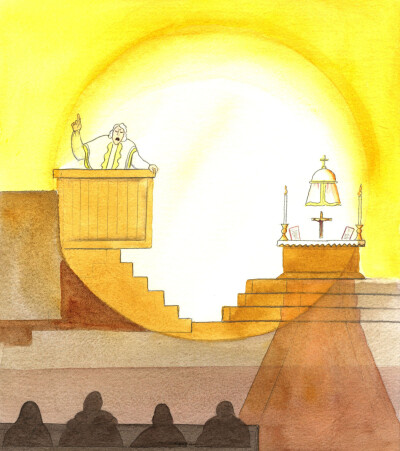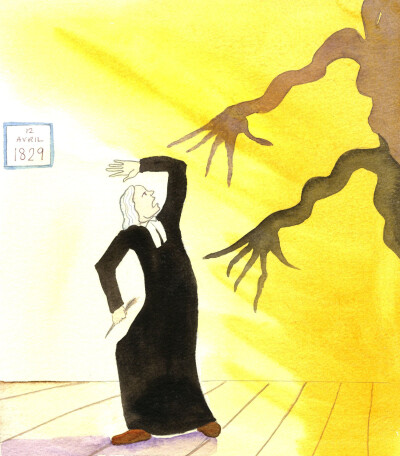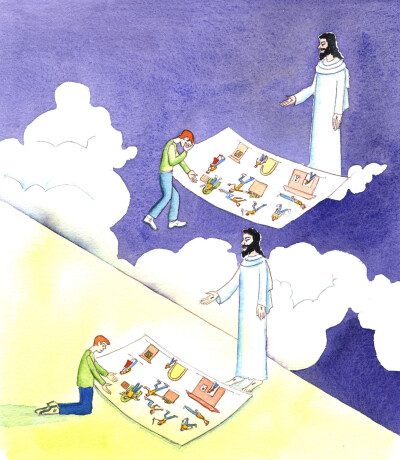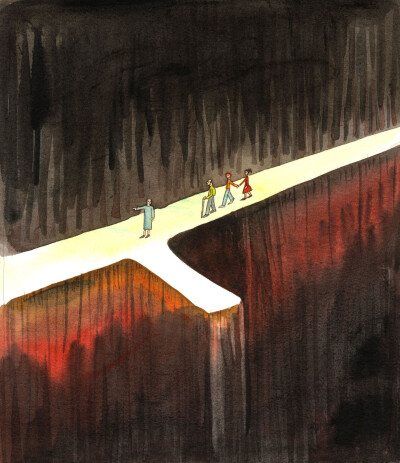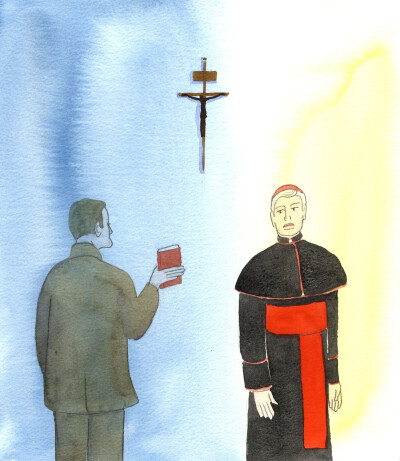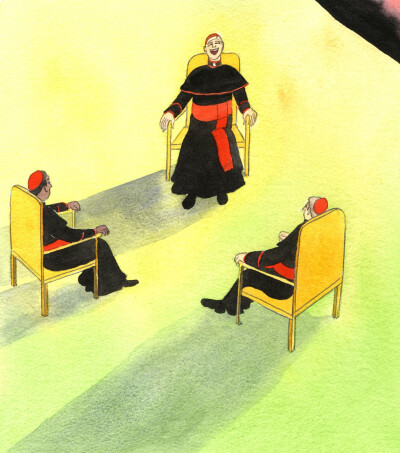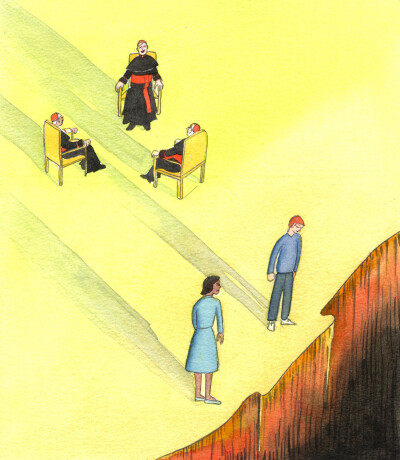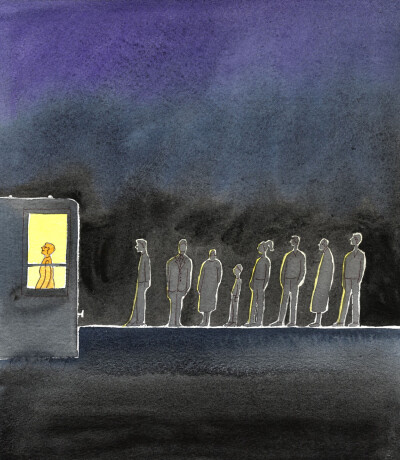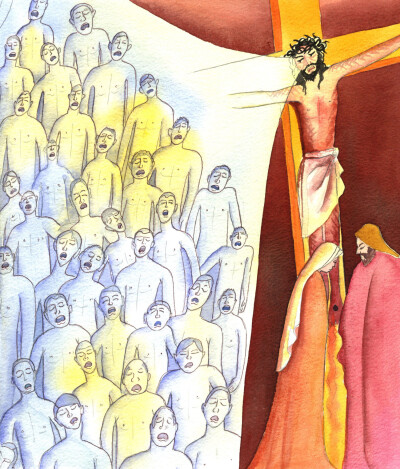Search Page
Showing 281 - 300 of 358
When a new Bishop is appointed, he should know what his Master, Christ, is inviting Him to examine, as he begins his care of a new Diocese. The Bishop will ask about his priests, and their well-being. He will look at the Seminary, and its training. He will ensure that catechesis is well-organised, orthodox and wholehearted; and he will see whether the Sacred Liturgy is celebrated in a way which gives glory to God, and every possible help for the education and salvation of souls.
The power of prayer, offered in the name of Christ, is extraordinary, especially the greatest prayer: the Sacrificial prayer of Christ in the Mass, offered for the faithful departed as well as the living. A soul in the depths of Purgatory can find himself brought suddenly, swiftly, towards the light of Heaven, as he cries out with joy because he has not been forgotten, but has had a Mass offered for him by a fellow Catholic.
Christ told me, about my Radiant Light paintings, that they are powerfully effective in helping people to assess their souls and lives. Just as a man who sees a drama on stage might see his own life mirrored, and want to make changes, so a person seeing his life or attitudes mirrored in many of my paintings can be led towards contrition, or to greater praise.
Bishops are called to do more than show out niceness. The Bishops of the Church should act, in their faithfulness and preaching, like a 'wall' of truth and care, to prevent any of their flock from falling into the Abyss. When Bishops neglect to preach about sin, but are mainly concerned to be nice to everyone, they will have to account to God for the souls of those whom they let through the gap in the 'wall', without a word of warning.
Modern countries call themselves civilized. But they differ from those ancient cultures who offered human sacrifice only in that people today usually try to hide what they do. Unborn babies are routinely killed, supposedly to bring happiness to the mothers, and some elderly or sick persons are killed, to make life easier for other people: killed in modern hospitals, quietly, by professionals who defy God and ruin their own souls.
For every little or large suffering we willingly bear in patience - even an experience of pain at the dental surgery - we can help to save souls, by that offering of penance in union with Christ. We can help someone in mortal sin who suddenly realises what a dangerous state he is in, or perhaps a dying person, who suddenly receives the grace to turn to God, in trust and hope.
St. John Vianney's burning desire was to share the Faith and to save souls. His first preparation for his priestly task was to pray to the Lord, at the tabernacle, pleading for his flock, and also making a worthy preparation for the Holy Sacrifice of the Mass, which he would offer for his parish as well as the whole Church.
St. John Vianney was not afraid to preach the truth in the pulpit, sometimes weeping as he spoke, as he described the miserable state of souls who cared nothing for God and might never arrive in Heaven.
St. John Vianney was so fervent that he was inevitably attacked by Satan, who wanted to frighten him into giving up his Ministry; but St. John knew the power of Christ, and trusted in Him. He learned to laugh at Satan, and continued to work and pray, to save souls.
We are indeed blessed if we are able to reveal our souls and lives to Christ, now, in prayer, to receive guidance, consolation and forgiveness. If we die, without having lost our state of grace, but without having really surrendered to Christ, we shall have to reveal our hearts and lives to Him in Purgatory, with nothing to distract us from our shame and remorse. Far better to trust in Him now, and strive for sanctity.
We are told by some critics that we use an old-fashioned phrase if we say we hope to save souls, by the grace of Christ. But that is what we do indeed achieve, by His grace, if we follow the promptings of the Holy Spirit, and guide people away from sinful ways of living that are like a cul-de-sac ending in the Abyss.
Some good souls cannot go straight to Heaven. It is common to hear people say, with a smile, that they will have to go to Purgatory, that they know they are not saints. Yet it is a tragedy, in their eyes, when they arrive, to be held captive there, as they see at last what lack of love for God, or laziness, kept them from achieving real holiness. What remorse they feel there, when they see that they could have become worthy to leap straight from earthly life into the embrace of their Saviour, Jesus.
There are people in the Church who dishonour Christ by distorting the Faith. No-one should insult such dissenters; it is enough to speak about the errors in their works; but no Bishop should give them work to do in His Diocese that will damage the souls of his flock, no matter how famous, influential or persuasive that person might be.
God can work wonders through our perseverance. When a priest, or any sincere follower of Christ, finds it hard to believe in the saving power of the Cross, and sees life as a grim progress with little hope, he should reflect on this truth: whoever imitates Christ and accepts the Cross, in patience, finds that, little by little, it becomes a living thing, fruitful, putting out new branches and leaves, precisely because that person is reproducing Christ's life, and being fruitful in saving souls.
Catholics ought to pray earnestly for their Bishops, who have so many people demanding their time or attention, or complaining, or flattering them; and it is easy for some to forget their main purpose: to teach, govern and sanctify those in their care. They will have to account to God for the souls in their care.
What will God's judgement be, on those Bishops who have focused on unimportant matters, and have neglected to teach the Faith in its entirety, thus endangering the Faithful? It's as though they have allowed souls in need of careful shepherding to wander near the edge of the Abyss.
If we had a huge barn, that was full to the top with our sins, but then we confessed them sincerely, in the Sacrament of Penance, and received absolution, we could be certain that our sins are entirely banished, and that barn empty. Then our souls would be beautiful, giving joy to Christ, and hope to ourselves.
It is true that Holy Souls in Purgatory are safe in God's care, and certain to go to Heaven when they have been made ready to enter. But some are so long in Purgatory that they look on, over and over again, as other souls speed away to Heaven. It's as if those guilty of grave sin, but saved at the last moment of life by the Last Sacraments, have to watch one train after another go to Heaven without them. Their purification is very lengthy. They, especially, need our prayers.
We should remember that the Holy Souls are still members of the Church. We can picture the forgotten souls in Purgatory as being in the deepest valleys, between mountains, in a vast underground area that we cannot enter but that we can penetrate by our prayers. We can help the Holy Souls by the prayers we offer for them in Christ's name; and we can assure them that they are not forgotten.
Christ saw dreadful sights as He suffered on the Cross. He saw the aborted babies whose lives would be cruelly ended; but even worse for Him was the sight of many 'dead' souls: diseased souls in mortal sin, souls now made foul and repulsive through their own thoughts and actions; so Christ's torment was spiritual and mental, as well as physical, in His Passion.
Showing 281 - 300 of 358

